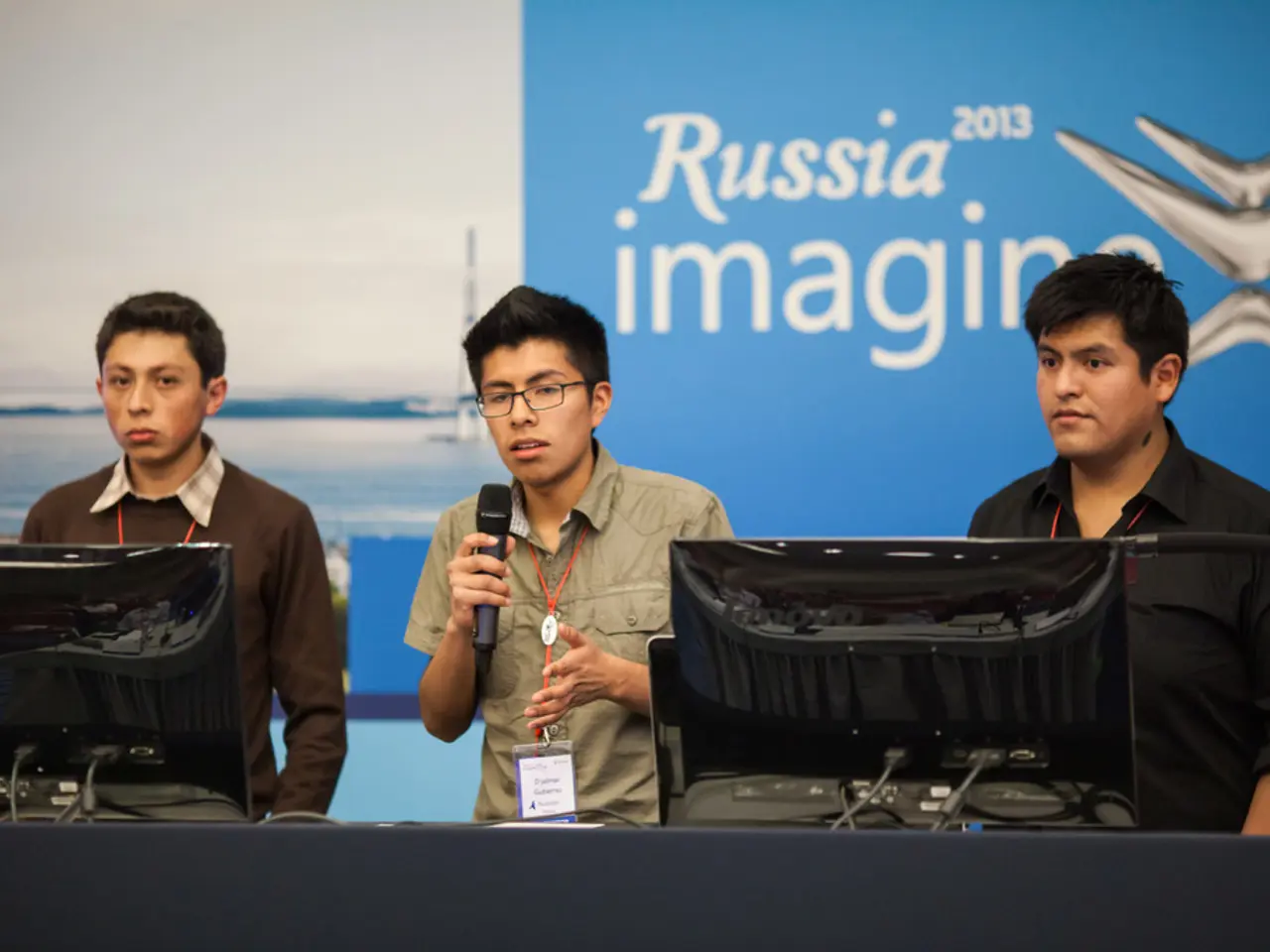U.S. President Trump issues threats of severe repercussions towards Russian leader Putin - Trump issues threats of severe repercussions towards Putin
The Alaska Summit between U.S. President Donald Trump and Russian President Vladimir Putin, held on August 15, 2025, has raised deep concerns among European and Ukrainian leaders. The key points discussed revolve around the exclusion of Ukraine, potential pressure for territorial concessions, and the doubtful prospects for peace given Russia’s intransigence and ongoing military aggression during the talks.
Chancellor Friedrich Merz (CDU) of Germany demanded that European and Ukrainian security interests be preserved in Alaska. He expressed hope for movement and peace in Ukraine ahead of the summit but warned that if there is no progress, the USA and Europe must increase pressure on Russia. Merz also emphasised the need for robust security guarantees for Kiew and the defensive capability of the Ukrainian armed forces.
The summit ended without any agreement or ceasefire, with Trump suggesting that Ukraine bears responsibility to cede territory to end the conflict. This prospect alarmed Kyiv and European capitals, as Ukrainian President Volodymyr Zelenskyy was excluded from the talks. European and Ukrainian leaders worry that Putin aims to extract significant territorial concessions from Ukraine, knowing Kyiv would reject them, thus positioning Ukraine as the obstacle to peace in Trump’s view.
Analysts note Putin’s continued aggressive attacks on Ukraine during the summit, especially targeting cities with drone strikes, signalling that Russia’s maximalist and eliminationist war goals remain unchanged. There is skepticism in Europe that any deal reached without Ukraine’s involvement can be durable or just, highlighting the strain this summit places on the transatlantic alliance and the broader liberal international order.
Experts urge Trump to adopt a tougher stance toward Russia to achieve meaningful progress, stressing that Putin’s tactic appears to be stalling and using economic offers primarily to isolate Ukraine and Europe from U.S. support.
Negotiations must be part of a common transatlantic strategy, according to Merz. Macron advocated for a trilateral meeting between Trump, Putin, and Zelensky in Europe. Trump suggested a potential meeting between Zelensky and Putin after the Alaska summit. Trump is expected to first inform Zelensky, followed by the European core group, including Germany, on Friday night or Saturday morning.
Von der Leyen announced that Europe, the USA, and NATO have strengthened their common basis after the video conference. Merz stated that if there is no progress in Alaska, the USA and Europe must increase pressure on Russia. He also suggested that the contact line (front line) should be the starting point for negotiations on territorial questions, and the legal recognition of Russian occupations is not up for debate.
In summary, the Alaska Summit raised deep concerns among European and Ukrainian leaders about the lack of Ukrainian participation, the potential pressure for Ukraine to make territorial concessions, and the doubtful prospects for peace given Russia’s intransigence and ongoing military aggression during the talks.
Read also:
- Massive 8.8 earthquake hits off the coast of Russia's Kamchatka Peninsula, prompting Japan to issue a tsunami alert.
- Court petitions to reverse established decision on same-sex marriage legalization
- Proposed Standardization of Food Labeling Laws Among Member States by the Commission
- Experimenting with Merz's Germany has stretched into an extended period of time, resembling a numerous three-month duration.








